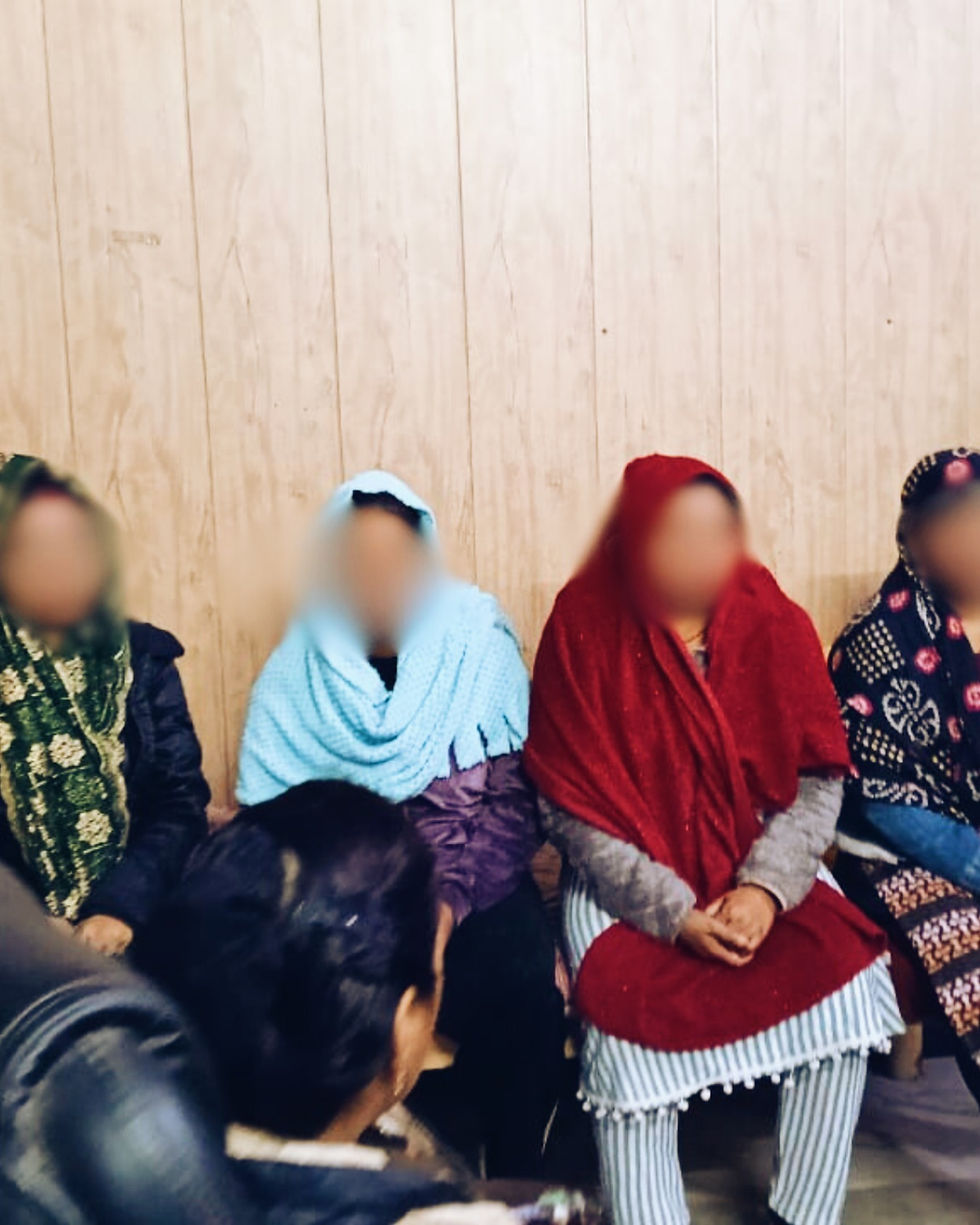2 Minors + 4 majors Rescued from Mumbai’s Red Light Area
- Freedom Firm USA

- Mar 1, 2024
- 3 min read
Updated: May 16, 2024

On February 14, we learned that two Bangladeshi minors, Kamna and Palomi, were being exploited in Mumbai’s red light area, Kamathipura. We shared this information with the police, and on February 16, the police and our team prepared to rescue the victims. Due to a tip off, some of the brothels shut down and the police cancelled the raid. We were concerned that Kamna and Palomi might have been moved from Kamathipura, or worse, trafficked out of state, making it difficult to rescue them.
On February 17, we received information that neither victims were at the brothel. We visited the red light area several times over the following few days, but we could not find Kamna and Palomi. The police grew impatient with our team’s persistence and their cooperation decreased.
On February 28, we called the Assistant Commissioner of Police (ACP), from the Crime Branch in Mumbai and explained the situation to him. The ACP was eager to help and asked for regular updates on the victims.
On February 29, we met with the ACP in Mumbai to discuss a rescue strategy. The Anti Human Trafficking Unit (AHTU) offered to assist (depending on their availability), and a Police Inspector (PI) who assisted in another rescue was also available to help with the rescue operation.
That evening, we met with the PI and her team to discuss a rescue plan. Due to the unavailability of lady police officers, the police were unable to initiate the raid that evening, so the raid was postponed to the next evening.
On March 1, we met the police and AHTU in the evening. After finalizing our rescue plan, we proceeded to Kamathipura.
At 8:45 p.m., the police and our team raided the brothel. Although we could not find Kamna, we found another minor, Kareena, with her brothel keeper. We suspected that Kareena was from Bangladesh. We also found Palomi, and four other victims. The police rescued the victims and arrested Kareena’s brothel keeper. The police collected evidence from the brothel, including condoms, mobile phones, and other photographic evidence.
At 10:24 p.m., the police completed their initial reports at the brothel, and the six victims, the accused, and our team proceeded to the police station. The AHTU interviewed the victims and interrogated the brothel keeper. Although we wanted to add Section 370 of the IPC (rigorous imprisonment for those who knowingly sexually exploit a minor) to the First Information Report (FIR), the police stated that the victims’ ossification tests needed to be completed, and opted for an alternative approach.
On March 2, at 7 a.m., the police completed the FIR. They told us that the victims would be presented in court at 11 a.m. but later informed us that the hearing was postponed to 1 p.m. At 10:45 a.m. we learned that the victims were taken to a medical check-up at a government hospital. When our team was at the court at 1 p.m., we were told that the victims would arrive at 3 p.m. As we continued to wait for the victims, we noticed that a police bus had been sitting outside the court for some time.
At 2:50 p.m., the victims exited this same police bus, and they were intercepted by Kareena’s brothel keeper and another lady. Our team questioned the lady about her presence and she stated that she was a friend. We questioned the police about why this lady was given access to the victims; the police were silent. We told the lady to leave.
A lady police officer took the brothel keeper’s mobile phone and handed it to someone standing nearby. At this point, the AHTU arrived and asked about the mobile phones that were brought in as evidence and recorded in the FIR on February 29. The police officer said defensively that she had done nothing wrong, and that the evidence recorded was not phones, but Aadhar cards (Indian I.D. card, similar to a social security card). Our team suspected this was incorrect information because we witnessed three confiscated phones at the police station while the FIR was being filed the day before. Now, the phones which were to be presented as evidence, had “disappeared.”
Because the judge was on leave, the victim’s could not record their 164 statements (164 statement is a voluntary statement in which the victim shares her experience at the brothel and names of the accused to the magistrate). The court ordered a few reports on the victims to be submitted to them within the week.
Kareena Palomi








Comments